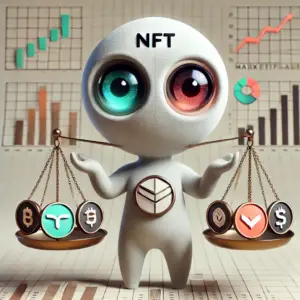The advent of NFTs (non-fungible tokens) has revolutionized the digital realm, transforming ownership and authenticity of digital assets like art, music, and collectibles. While this innovation holds immense potential, it’s crucial to navigate the NFT landscape with caution, as the space is also rife with scams and fraudulent activities. To safeguard your investments and protect your digital assets, it’s essential to be well-informed and equipped with strategies to identify and avoid NFT scams.
Understanding the Common NFT Scams
The NFT space is no stranger to malicious actors and fraudulent schemes. Some of the most prevalent NFT scams include:
- Fake NFTs: Scammers create copies or imitations of popular NFTs and sell them to unsuspecting buyers. These counterfeits often mimic the original artwork, making it difficult to differentiate between the genuine and fake tokens.
- Malicious Minting Contracts: These contracts are designed to steal users’ cryptocurrency when they connect their wallets to mint or buy an NFT. Scammers alter the contract code to redirect funds to their own wallets instead of the intended recipients.
- Impersonation Scams: Scammers create fake social media accounts, Discord channels, or websites impersonating legitimate NFT projects. They lure users into connecting their wallets and then steal their cryptocurrency or NFTs.
- Pump and Dump Schemes: Fraudulent actors promote NFTs in an attempt to artificially inflate their prices. They then sell their tokens at inflated prices, leaving unsuspecting buyers holding worthless assets.
Protecting Yourself from NFT Scams: A Comprehensive Guide
To safeguard your NFT investments and protect your digital assets, follow these essential steps:
1. Do Your Research:
Before investing in any NFT project, conduct thorough research on the project team, their reputation, and the project’s roadmap. Check for reviews, testimonials, and social media engagement to assess the project’s legitimacy.
2. Trust Reputable Platforms:
Only use established and reputable NFT marketplaces like OpenSea, Rarible, and SuperRare. These platforms have robust security measures and user protection policies in place.
3. Verify Links and Contracts:
Always verify the authenticity of links and contracts before connecting your wallet. Never click on links from unsolicited messages or sources you don’t trust. Use tools like Etherscan to verify the smart contract code and ensure it’s legitimate.
4. Be Skeptical of “Too Good to Be True” Deals:
If an NFT deal sounds too good to be true, it probably is. Be wary of promises of guaranteed high returns or unrealistic price appreciation. Remember, there are no shortcuts to success in the NFT space.
5. Protect Your Wallet Security:
Use strong passwords and enable two-factor authentication for your cryptocurrency wallets. Avoid using the same password for multiple accounts to minimize the impact of a breach.
6. Exercise Caution with Social Media Interactions:
Be cautious about interacting with individuals or groups offering NFT giveaways or exclusive access in exchange for personal information or cryptocurrency payments. These may be scam attempts to steal your assets.
7. Familiarize Yourself with Common Scam Tactics:
Learn about the most common NFT scams, such as fake NFTs, malicious minting contracts, and impersonation schemes. This knowledge will help you identify potential red flags and avoid falling victim to these traps.
8. Report Suspicious Activity:
If you encounter suspicious activity or believe you may have fallen victim to an NFT scam, report it immediately to the NFT marketplace, cryptocurrency exchange, or relevant authorities.
Additional Tips for Safer NFT Transactions:
- Use a separate cryptocurrency wallet for NFT transactions to isolate your NFT assets from your general cryptocurrency holdings.
- Avoid interacting with strangers or joining private groups that require cryptocurrency payments for entry.
- Seek assistance from experienced NFT enthusiasts or community members if you have any doubts or concerns.
Remember, vigilance and caution are paramount in the NFT space. By following these guidelines and exercising due diligence, you can navigate the NFT landscape with greater confidence, minimizing the risk of scams and protecting your digital assets.






